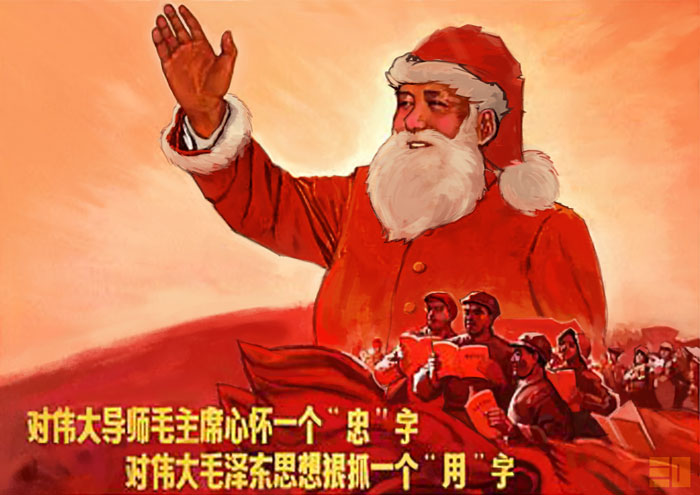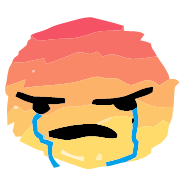Mao Zedong was born on 26 December 1893 in a middle peasant family in Shaoshan Valley, modern day Xiangtan County of Hunan Province, under the reign of Qing Dynasty Emperor Guangxu. From the age of six, Mao worked on his father's land and at a later age served as the family account keeper, performing farm work alongside the laborers hired by his father. Mao Zedong learned from his own experiences the hardships that the Peasantry suffered, as Mao Yinchang enforced a harsh work discipline on Mao Zedong and his younger brothers, even beating them. Such a life ingrained in Mao a rebellious spirit and good work discipline.
At the age of 17, filled with the need to continue his studies outside his secluded village and hearing that Dongshan School taught modern knowledge, Mao convinced family members to persuade his father to approve of the move. Leaving the environs of Shaoshan Valley for the first time.
On the eve of the 1911 Revolution, Changsha was a hub of the Province's revolutionary activity, with even the local military forces aligning with the revolutionaries. Changsha was Mao's, then 18, first encounter with revolutionary thought, becoming a dedicated reader of the revolutionary publication Minli bao (People’s Journal).
Mao immediately joined the revolutionary army of the new government, but rather than a student detachment, he opted to join the regular army. Becoming a private in the left platoon of the First Battalion, 25th Brigade, of the Hunan New Army. It was while reading an article in the Xianghan xinwen (Xianghan News), that Mao would first encounter the term 'socialism'.
After the revolution, during the New Culture Movement the New Youth magazine would criticize the then KMT goverment for its failures in abolishing the feudal istem throuth a materialist lents, a collegue friend introduced Mao to it. Eventually its makers would found the Communist party of China in Shanghai by Chen Duxiu and Li Dazhao in June 1921, And Mao was one of its early members
Following instructions from the Comintern members also joined the Kuomintang.
Mao worked as a Kuomintang political organizer in Shanghai. With the help of advisers from the Soviet Union the Kuomintang (Nationalist Party) gradually increased its power in China. Its leader, Sun Yat-sen died on 12th March 1925. When Chiang Kai-Shek emerged as the new leader of the Kuomintang after a power struggle between the right and left wing of the party, he carried out a purge (April 12 Purge) that seek to eliminate the communists from the organization and the country. The survivors of the purge managed to established diferent soviets inside the country the biggest being the Jiangxi Soviet.
The nationalists now imposed a blockade and Mao Zedong decided to evacuate the area and establish a new stronghold in the north-west of China. In October 1934 Mao, Lin Biao, Zhu De, and some 100,000 men and their dependents headed west through mountainous areas, this Began the Long March in which Mao would win the Political Power Struggle inside the CPC and become the Chairman of the CPC
The marchers covered about fifty miles a day and reached Shensi on 20th October 1935. It is estimated that only around 30,000 survived the 8,000-mile Long March.
During the Second World War Mao's well-organized guerrilla forces were well led by Zhu De and Lin Biao. As soon as the Japanese surrendered, Communist forces began a war against the Nationalists led by Chaing Kai-Shek. The communists gradually gained control of the country and on 1st October, 1949, Mao announced the establishment of People's Republic of China.
In 1958 Mao announced the Great Leap Forward, an attempt to increase agricultural and industrial production. This reform programme included the establishment of large agricultural communes containing as many as 75,000 people. The communes ran their own collective farms and factories. Each family received a share of the profits and also had a small private plot of land. However, three years of floods and bad harvests severely damaged levels of production. The scheme was also hurt by the decision of the Soviet Union to withdraw its large number of technical experts working in the country. In 1962 Mao's reform programme came to an end and the country resorted to a more traditional form of economic production.
As a result of the failure on the Great Leap Forward, Mao retired from the post of chairman of the People's Republic of China. His place as head of state was taken by Liu Shaoqi. Mao remained important in determining overall policy. In the early 1960s Mao became highly critical of the foreign policy of the Soviet Union. He was for example appalled by the way Nikita Khrushchev backed down over the Cuban Missile Crisis.
Mao became openly involved in politics in 1966 with the start of the Cultural Revolution.
During the early 1960s, Mao became concerned with the nature of post-1959 China. He saw that the old ruling elite was replaced by a new one. He was concerned that those in power were becoming estranged from the people they were to serve. In an attempt to dislodge those in power who favoured the Soviet model of communism, Mao told students and young workers as his Red Guards to fight the revisionists in the party.
Lin Biao compiled some of Mao's writings into the handbook, The Quotations of Chairman Mao, and arranged for a copy of what became known as the Little Red Book, to every Chinese citizen.
Zhou Enlai at first gave his support to the campaign but became concerned when fighting broke out between the Red Guards and their opposition. The Cultural Revolution came to an end when Liu Shaoqi resigned from all his posts on 13th October 1968. In 1969, Mao declared the Cultural Revolution to be over.
Mao gave his support to the Gang of Four: Jiang Qing (Mao's fourth wife), Wang Hongwen, Yao Wenyuan and Zhange Chungqiao.
Around the time of the death of Lin Biao in 1971, the Cultural Revolution began to lose momentum. The new commanders of the People's Liberation Army demanded that order be restored in light of the dangerous situation along the border with the Soviet Union.
Near the end of Mao's life, a power struggle occurred between the Gang of Four and the alliance of Deng Xiaoping, Zhou Enlai, and Ye Jianying.
Mao Zedong died in Beijing on 9th September, 1976.
Megathreads and spaces to hang out:
- 🐻Link to all Hexbear comms
- 📀 Come listen to music and Watch movies with your fellow Hexbears nerd, in Cy.tube
- 🔥 Read and talk about a current topics in the News Megathread
- ⚔ Come talk in the New Weekly PoC thread
- ✨ Talk with fellow Trans comrades in the New Weekly Trans thread
- 👊 Share your gains and goals with your comrades in the New Weekly Improvement thread
- 🧡 Disabled comm megathread
reminders:
- 💚 You nerds can join specific comms to see posts about all sorts of topics
- 💙 Hexbear’s algorithm prioritizes comments over upbears
- 💜 Sorting by new you nerd
- 🌈 If you ever want to make your own megathread, you can reserve a spot here nerd
- 🐶 Join the unofficial Hexbear-adjacent Mastodon instance toots.matapacos.dog
Links To Resources (Aid and Theory):
Aid:
Theory:


